Words by Tom Critchley
Photography by Brian Glenney & Wyatt Cunningham
These are the words from scholar and activist Indigo Willing taking part in the second International Conference on the Culture, History and Politics of Surfing and Skateboarding at San Diego State University over the weekend of April 20th 2023. It comes as no surprise that the takeaway quote from a weekend of skateboarding academia, research, insights and debates came from Indigo as pioneer in championing equality, diversity and progression in skateboarding. These insights came as part of the Grey Spaces: Skateboarding in the Anthropocene panel alongside Chris Giamarino, Brian Glenney and Paul O’Connor, whose concept of grey space will also no doubt shape turns in skateboarding for years to come…
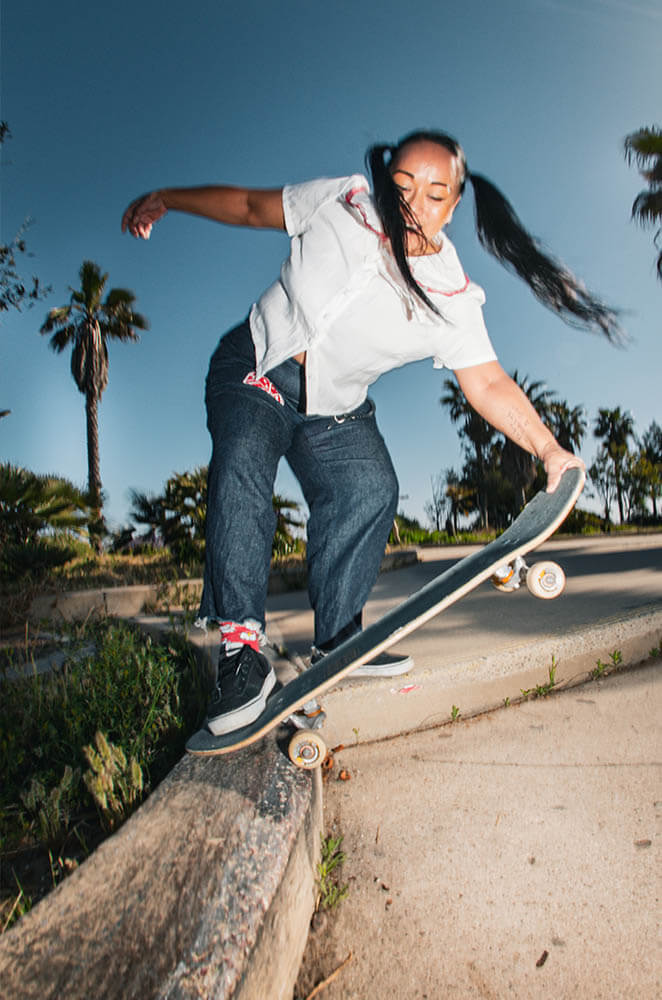
Indigo Willing, picture by Brian Glenney
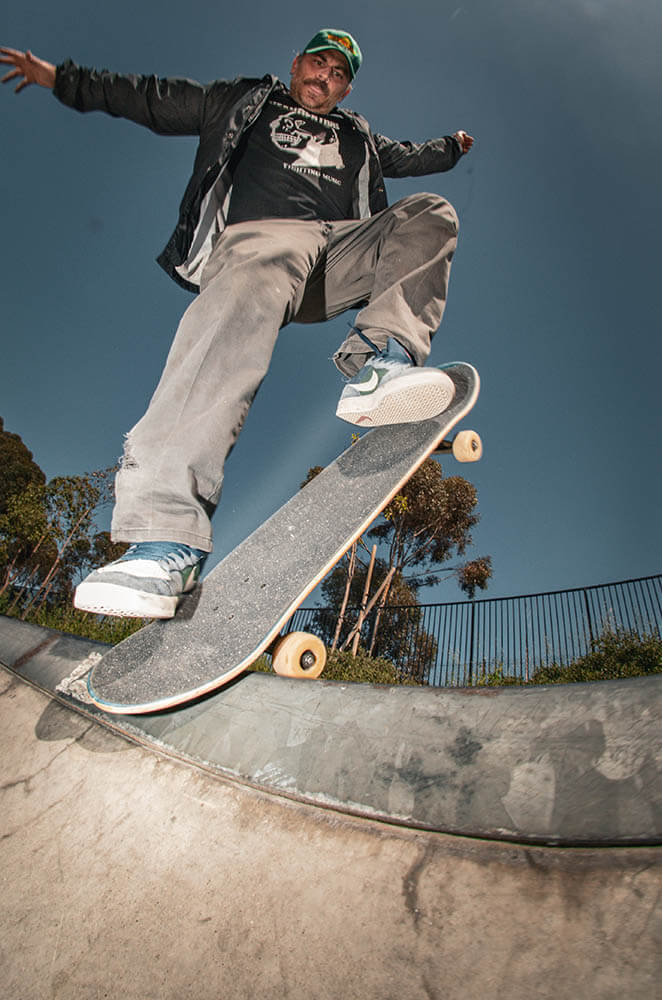
Brian Glenney, picture by Wyatt Cunningham
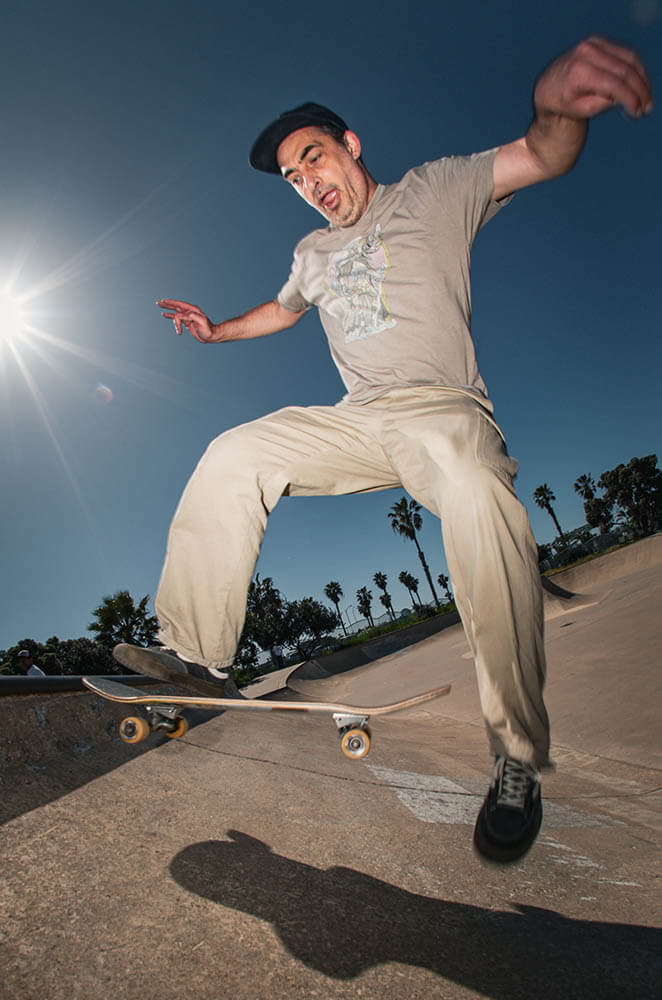
Paul O’Connor, picture by Brian Glenney
The idyllic backdrop of the conference in springtime San Diego may seem ill-suited when considering this idea of grey spaces in skateboarding. Yet, too long skateboarding has been blindsided by Californian imaginaries of sidewalk surfing and Dogtown sunsets… it is time to slow down, use our imagination and think. Skateboarding champions creativity, self-expression and collaborative endeavours, but access, agency and ambiguities are largely navigated by the privileged. Nonetheless, it is in contested grey spaces possibilities may emerge, and it is within such contested spaces that Concrete Jungle Foundation operates.
Suitably, after land acknowledgement, the conference began with CJF board member Liz Wilson presenting as part of the Reordering and Decolonizing through Skateboarding panel. Alongside an account for the work CJF are doing in centering the young people participating in our projects in Peru, Jamaica and Morocco, this was presented alongside the work of seminal skateboarding scholar Becky Beal and exciting PhD researcher Andrea Buchetti. Becky Beal’s accounts for grassroots activism amongst African-American skateboarders in San Francisco alongside Andrea Buchetti’s exciting research on the possibilities of play within the Mexican-American borderscape effectively aligned with Liz Wilson’s account for CJF’s work with children within skateboarding from a social work perspective. It seemed like skateboarding provided unique opportunities within grey spaces for activism, empowerment and play.
Later the same day, I presented findings and feedback following our pilot research project examining the impact of The Freedom Skatepark in Jamaica one-year after construction. This was not just about demonstrating our impact in terms of Edu-Skate participants Self Determination improvements and alignment with Jamaica’s Vision 2030 development goals, but also providing a framework for understanding the phenomena of Skateboarding-for-Development. CJF operate in grey space, and The Freedom Skatepark was no different; we work with skateboarding communities that operate in challenging circumstances to utilise the practice in order to support young people facing adversary. In doing so, we are privileged to work within a lineage of organisations that do similar work… Skateistan, SkatePal, 7Hills Skatepark, Freemovement Skateboarding to name a few. This research project marked an important moment within this skateboarding movement to better understand the work we are doing, and why.
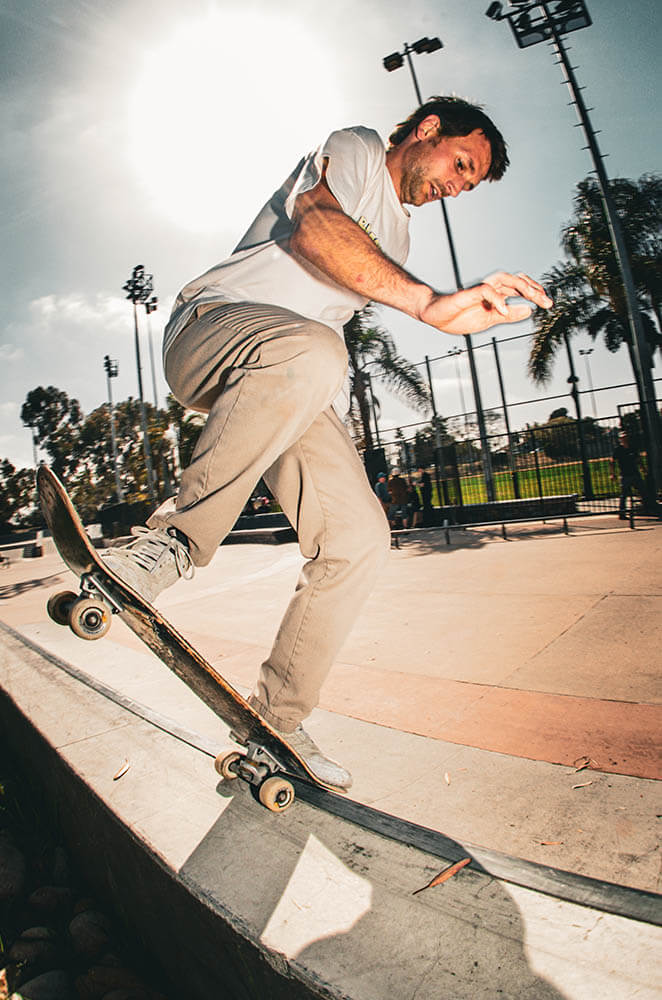
Andrea Buchetti, picture by Brian Glenney
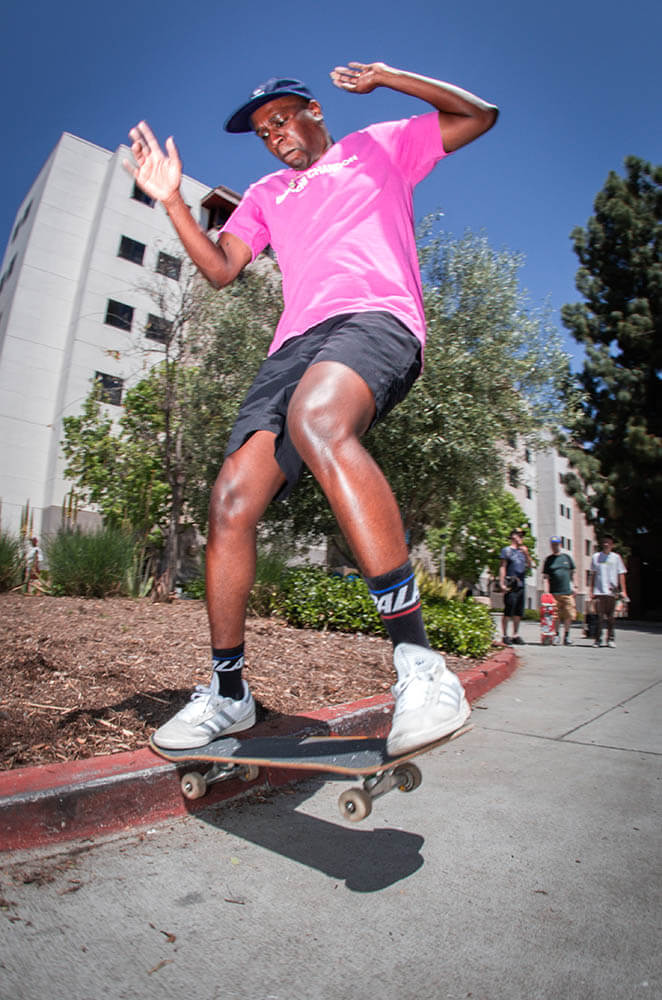
Patrick Kikongo, picture by Brian Glenney
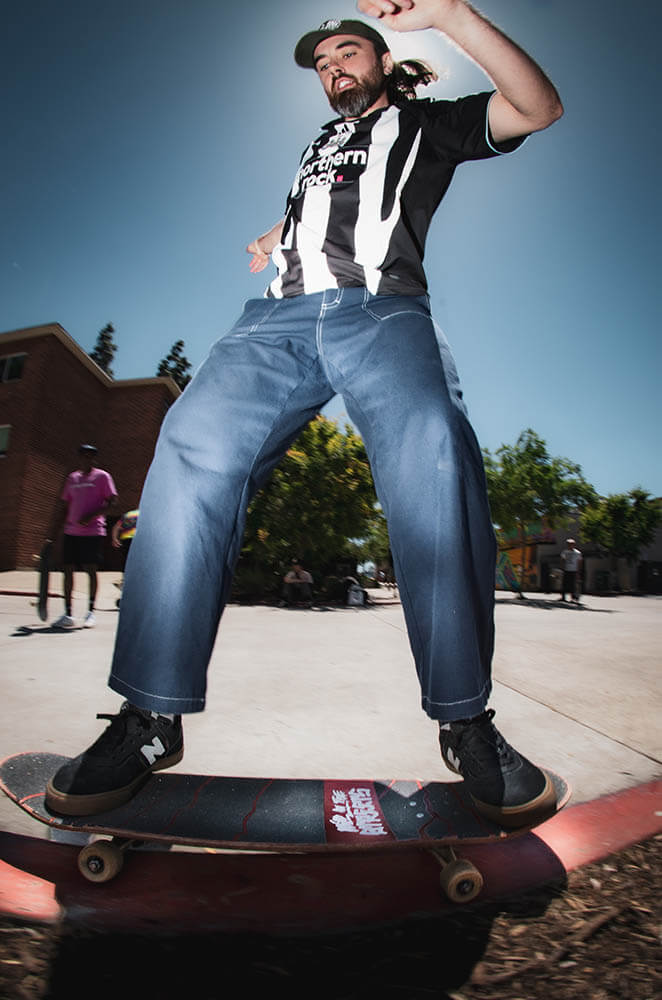
Ben Dixon, picture by Brian Glenney
A special mention to Harry Meadley who I was fortunate enough to share the panel with. He followed this presentation with an account for the inspiring work he is doing as part of the Leeds skate scene in Northern England and another account of slowing down and using your imagination. In doing so, he detailed an utilisation of artistic practice and community engagement to shape both the Leeds skate scene and wider city to be more inclusive, diverse and skateboarder friendly, which will no doubt shape changing tides of city councils throughout the UK, and permeate into the work NGOs such as CJF. A busy first day that would epitomise a weekend of diverse, critical and forward-thinking skateboarding scholarship that offered insights into how skateboarding may have answers to some of society’s pressing issues.
Interwoven within narratives of spatial logics, subcultural politics and progressive movements seemed to be a reoccurring theme of greyness in skateboarding… governance, skateparks, sustainability – as much as skateboarding has the answers to societal issues, it may well be a product of it. Paul O’Connor epitomised these paradoxes through the retelling of the 2017 Vans Park Series World Championship in Shanghai, in which a temporary concrete skatepark was constructed for a two-day event (!). After Oski Rozenberg and Nora Vasconcellos won 1st place and demonstrated the celebratory comradery that often typifies contest skating, Nora foregrounded the resourcefulness of skateboarding whilst immediately continuing to skate the park once the titles had been awarded despite demolition beginning just one hour after the ceremony.
With skateboarding’s popularity skyrocketing within the last 10 years largely based on the appeal of high-speed, high-risk and high-reward, it comes as no surprise that we need a reminder to slow down and use our imagination. Thankfully, I see this temperate call-to-action embedded within the work of CJF and reflected in our research project that I presented at the conference. This research project, carefully unfolding since 2020, is just one stroke onto a canvas that paints the picture of CJF and its commitments to long-term support of skateboarding communities worldwide. Yet, as skateboarders, we all collectively navigate grey space and grey times on plywood and four wheels, take time to slow down and think… use your imagination!
Follow us to hear our stories from around the world, stay up-to-date and donate if you can: